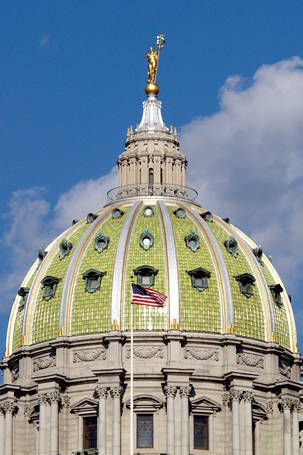Click here to subscribe today or Login.
It’s one of those unintended consequences.
You know, like the initial results of the venerable Smokey The Bear (happy 75th birthday, Smokey), a forest fire prevention idea so effective it made things worse. Fewer fires, sure, but when they did break out, their was so much fuel the damage went much deeper. Forest management changed as evidence showed some fires were pretty much expected by mother nature as a control mechanism.
Or the introduction of rabbits into Australia (for sport hunting, one story goes).Who would imagine such cute creatures that seemed so harmless in their native environs would wreak havoc on a nation’s crops if allowed to breed in country that never knew they existed. Either predators were culled as the human population grew, or the rabbits evolved a hardier breed, or both.
Of course, one need look no further locally than the scourge of Japanese knot weed, a non-native plant first brought to new areas as an ornamental. Again, a lack of natural control and an aggressive rhizome, or creeping rootstalk, system let it quickly overwhelm nearly any place it took hold in — possibly including your back yard.
Despite the glaring and numerous examples of unintended consequences through history, we collectively remain ready to ignore those lessons. The latest case in point: The decision to hold the Pennsylvania primary election earlier, pushing it this year from May to April. One example of the unconsidered results has manifest in recent weeks as local school boards scramble to make budget decisions for the 2020-21 fiscal year beginning July 1.
For decades, state law required school districts to pass a preliminary budget by the end of May and a final budget by the end of June. That’s still true, but Act 1 of 2006 re-dealt the deck by establishing the “Act 1 Index,” a limit on property tax increases calculated each year for each district.
If a School Board votes early enough to stay within the index, the old deadlines still apply, but if a board believes it needs to exceed the limit to keep the doors open, it has to either seek voter approval via a primary referendum or seek approval of exceptions from the state.
The deadlines for those actions were tied to the primary election date. When the date was in May, most districts didn’t have to make a decision until some time in February. Now that the primary is in April, districts are making those decisions in January and even December.
In and of itself, that wouldn’t be such a big deal. Heck, taxpayers could rightly argue districts — and all government agencies — should be doing their budgets earlier, at the very least so said taxpayers have more time to scrutinize, recommend or criticize.
But a funny thing happened on the way to this contorted notion of accountability: Harrisburg didn’t change its own dates for budgeting. The governor continues the old tradition of releasing a budget proposal some time in February, the legislature continues its tradition of waiting until June (if not later) to make that particular sausage and pass a state budget. And that state budget makes up a sizable chunk of local school district budgets.
Local school districts are making financial decisions without an inkling of what the state will provide, while the state hasn’t even begun the real budget making process.
Gov. Wolf and the legislators in both houses need to remember the old adage:
Sauce for the goose …
— Times Leader





